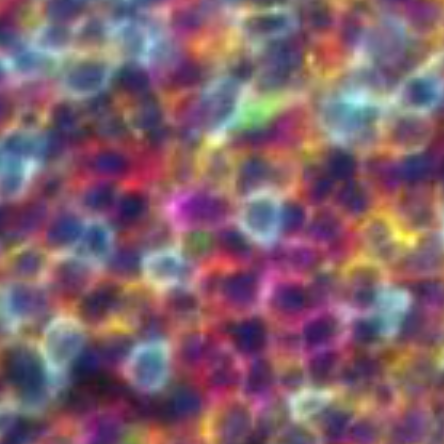PhDs and Postdocs
We currently do not have any open positions; if we do, we will post them here. However, we are always interested to hear from prospective postdocs, so please don't hesitate to drop us a message if you are interested in a postdoc in our group!
Prospective Bachelor and Master students
We are always interested in hearing from prospective Bachelor and Master students who would like to join us for research internships or thesis work. Our group has supervised Master students in Data Science, Artificial Intelligence, and Medical Biology; two of these then went on to join our group as PhD students.
Past position announcements
PhD Candidate in Data Science for Immunology and Cancer Research
Closing date: April 4th, 2021Note: The Apply button takes you to the official job posting website of our university. This website sometimes does not work, especially during the first days of a vacancy. If you get an error message, please try again 1-2 working days later. You can always contact Johannes Textor with your questions on this vacancy.
We are looking for an enthusiastic PhD candidate who will help our group advance immunology and cancer research by creating new methods to analyse complex datasets.
The human immune system is a natural defence mechanism against disease. Stimulated by vaccines or cancer therapies, it can fight pathogens or developing tumours in the body. Developing the next generation of such life-saving therapies will require a more detailed understanding of how the immune system works.
Thanks to rapid advances in biotechnology over the past few decades, immunologists are now able to gather rich datasets that provide an unprecedented level of detail about the inner workings of this complex system: it is now possible to film immune cells while they are roaming the tissue of living animals, to trace the development and maturation of immune cells circulating the blood, to measure thousands of genes in single cells, and to identify dozens of immune cell types in human tissue samples. However, despite these advances, learning meaningful things from such rich and diverse immunological data remains challenging and requires carefully designed analysis strategies.
Our group aims to extract meaningful and reliable insights from all these types of data (and more!), collaborating closely with both basic immunologists (who are expanding our knowledge of the immune system) and translational immunologists (who are bringing this knowledge to clinical practice to benefit patients). Once you have become proficient in the statistical and machine learning methods used in the field, you will improve upon these approaches and develop your own. You will also help us make these methods suitable to be used by our biological and clinical collaborators. Later on in your PhD, you will be able to choose your own focus according to your interests, for instance, you could specialise in analysing trajectories of moving cells, segmenting and phenotyping cells in pathology images using deep learning, or analysing T-cell receptor sequencing data.
Our group is embedded in a world-class research group in the field of data science and machine learning, and has strong ties to the Radboud Institute for Molecular Life Sciences as well as our collaborating groups abroad. This interdisciplinary position might be suitable for a molecular biologist aiming to specialise in biomedical data science or machine learning, or a data scientist wishing to enter the fascinating world of biomedical research. Please see our publication list for an overview of the kind of research we are involved in and the techniques we use.
You will contribute approximately 10 percent of your time (0.1 FTE) to help with the teaching responsibilities of our department. This may include, for instance, helping with practical assignments, grading coursework, giving presentations during classes, or supervising and mentoring student projects.
PhD position: Simulating large T cell collectives
Closing date: February 28th, 2021We are looking for a PhD Candidate who is curious about building a large-scale simulation of the human immune system and using it to improve our knowledge about how the real immune system learns.\n When you hear about 'artificial intelligence', you might think of computer programs or systems that are modelled after the brain - the biological system that is most commonly associated with the term 'intelligence'. But our bodies harbour a second intelligent system that is just as critical for our ability to thrive in this world: the adaptive immune system. And while the brain has been very much at the centre of attention in computer science in recent years, fuelled by the rise of 'artificial networks', there remain vast expanses of unexplored territory when it comes to understanding the immune system from a computational perspective. The Computational Immunology research group is looking for a PhD candidate to join the quest for building an 'artificial immune system': a computer simulation of how the T-cells that make up a large part of that system, process and store information, make decisions, learn, get confused, and forget.
Artificial immune systems have a long history dating back to the late 1980s, but for several years, only relatively small systems have been built. Like artificial neural networks in their early days, these early artificial immune systems were not very successful at reproducing biological phenomena or solving machine learning tasks. Over several years, our group has developed new algorithms that allow us to scale up such artificial immune systems by several orders of magnitude, which finally makes it possible to build simulations that resemble the real system in terms of size and complexity. You will further develop these new tools and build large-scale simulation models that can process real data on how the immune system responds to external stimuli (such as a virus infection) and make predictions that can be tested by comparing them with experimental data. Through iterations between model predictions and experiments (which are performed by our collaborators), you will harness your models to generate insight into the underlying principles of information processing and learning in the immune system. For an example of how this works, please have a look at our recent paper.
Ultimately, you will use your simulation to try and predict immune responses against specific foreign stimuli, such as a specific protein sequence (comparable to, for instance, a piece of the SARS-COV2 spike protein). If such predictions were possible, even if only in part, they would greatly improve our ability to design safe vaccines and other immunotherapeutic treatments rapidly. They would also help us understand how a patient's exposure to past pathogens might affect their responses to other pathogens in the future.
Of course, you will not work towards these goals on your own. Within our group, this position is part of a larger project, funded by a Vidi grant from the Dutch Research Council (NWO), and is part of a broader research line that also includes a new project funded by the Human Frontiers Science Program (G7 nations). The Computational Immunology group is affiliated with both Radboud University (Data Science section) and the Radboud university medical center (Tumor Immunology Department). Within our NWO and HFSP projects, we also collaborate closely with Dr Judith Mandl's group at McGill University, Montreal, with whom we regularly exchange students and staff. In summary, we provide ample opportunity for working with and learning from world-class scientists in both data science and immunology.
Are you curious about this position and do you want to learn more about employment conditions, the Data Science group, or working at the Radboud University? Please use this link to get to the official vacancy posting a the RU website.

